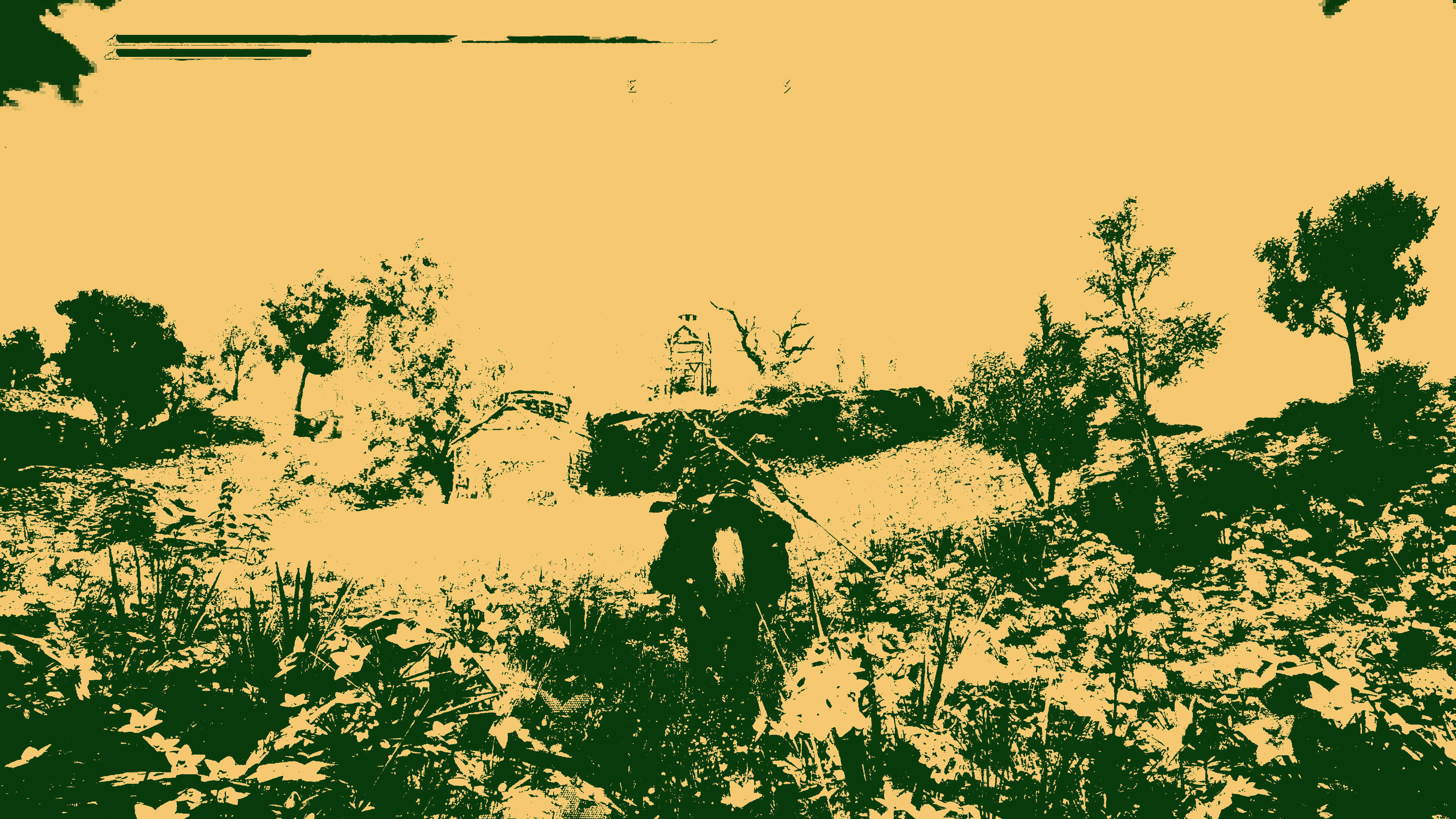
Shadow Sunflower: "These flowers, veiled in shadow and covered in impenetrable thorns, are suffused with profound holiness"
Scarlet Bud: "A large, rotten bud that will never come into bloom"
Red Fulgurbloom: "Flower that crackles with red lightning"
Redflesh Mushroom: "The flesh of the mushroom is similar to raw meat"
Whiteflesh Mushroom: "The flesh of the mushroom is similar to raw meat"
Sanguine Amaryllis: "A bloodflower with meaty petals"
Deep-purple Lily: "Like a syrupy poison, its nectar lulls the imbiber into sweet, velvety sleep"
A lot of Shadow of the Erdtree is empty. Fantastic landscapes—the imposing, hilly Finger Ruins of Dheo, the shimmering Cerulean Coast—are better opportunities for fatigued wandering than for action. Unlike the base game’s busy Lands Between, the far reaches of the DLC's shrouded Land of Shadow has barely any enemies in it, or elaborate outfits, or weapons. Instead, it has flowers.
On the map, I notice candy clusters of flowers—pink, purple, and soft, nectarine-slice orange. They sway, alone and lonely, in abandoned places like the Shaman Village. Often, I get to take them with me. Usually, the swirls of smoky light on the ground that denote items get me flowers and other crafting materials. Blessed Bone Shard and Black Pyreflies. Embers of Messmer and greasy, veinous Scorpion Liver. Though I rarely ever utilize Shadow of the Erdtree's crafting mechanic, I've made a habit out of dutifully picking up every item, for the sake of discovery.
I carry around bundles of Red and Yellow Fulgurbloom like, I imagine, teenage Emily Dickinson saddled herself with slumping ghost plants when making her herbarium. Or I feel closer to the mystic Hildegard von Bingen, who was so enamored by the items of the Earth, she constructed her own language to help collect them. Her lingua ignota identifies mint as gluziaz and onion as flichziz, turtle dove as haischa, and so on.
Shadow of the Erdtree, which is made up of so much wild land, encourages its players to likewise develop a unique language for sublimating its environment. That language phonemically consists of screaming; morphemically, there's dying. Dying allows you to both communicate with other online players through phantom bloodstains and better comprehend your harsh surroundings When you languish yourself at Trina's feet after drinking her poison nectar, for example, you'll realize the saint looks like a perfect blossom. Purple, with plump cheeks, she sleeps through your pain like an exhausted mother.
In her chamber, you'll find special sprouting flowers. These Nectarblood Burgeons can be used to make a blessed Lulling Branch, which gradually puts you to bed; Hildegard might have called it an aieganz, her word for angel. I prick myself with its purple stem before again agreeing to "Imbibe Nectar" in front of Trina, hoping that she won't immediately kill me this time. She does.
I eat more of her nectar, anyway—a lot more, like her palm is a fast food restaurant that always gives me a stomachache, but, God, I need the fries.
Finally, I've died enough times. Trina breaks her silence. "Make Miquella stop … don't turn the poor thing into a god," she tells me in a strained whisper.
"You are a wretched, wretched soul," exclaims her devoted lackey Thiollier, who refuses to believe Trina spoke to me. He hasn't formed a private language yet, an instinctive link between him and the land.
But I have. Shadow of the Erdtree’s Land of Shadow provides me with good opportunities for working on it—there's so much time for thoughtful strolling and cataloging. Plucking flowers and catching butterflies. Indulging in simple truths and underrated knowledge—not trying to understand the world around you, necessarily, but being able to call it by its name.
***
Ashley Bardhan is a video game critic who was born in Flushing, Queens. Her reports and criticism have appeared in Rolling Stone, IGN, Vulture, and elsewhere. She writes the experimental video game blog Plant or Beast.